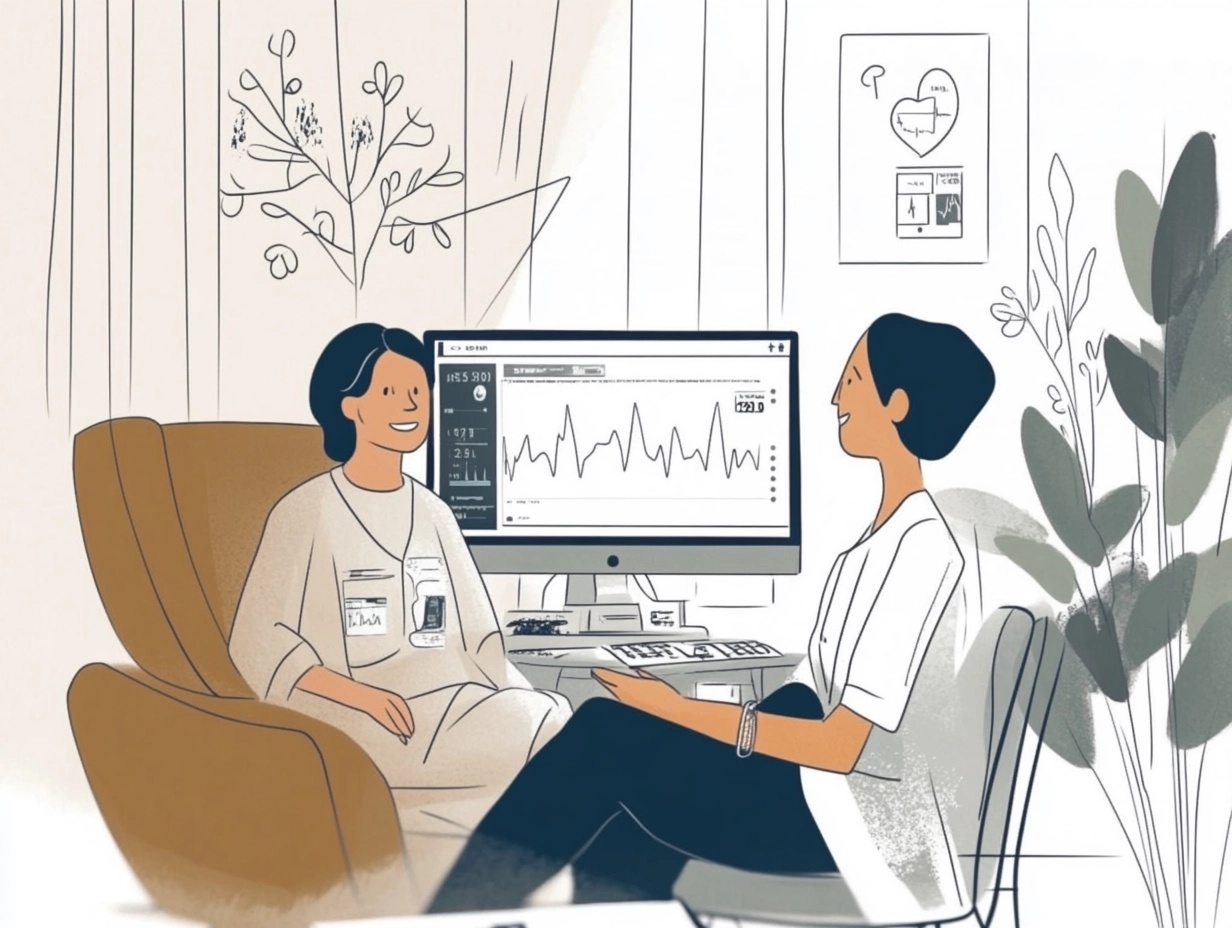Dysautonomia is a disorder of the autonomic nervous system that can cause a number of problems, including fainting, lightheadedness, and fatigue. Heart rate variability (HRV) biofeedback is a promising treatment for dysautonomia that involves training the autonomic nervous system to better regulate heart rate. HRV biofeedback has been shown to be effective in reducing symptoms and improving quality of life for patients with dysautonomia.
What is dysautonomia?
Dysautonomia is a condition involving dysregulation of the autonomic nervous system. It encompasses several different medical conditions that can affect the way your body regulates blood pressure, heart rate, temperature, digestion, and other critical functions. In many cases, dysautonomia impacts everyday tasks, as well as overall quality of life. It is an invisible illness that often goes unrecognized or misdiagnosed due to lack of awareness and understanding of dysautonomia. For those affected by dysautonomia, recognizing the signs and symptoms may be the key to improving their quality of life.
What are the symptoms of dysautonomia?
Dysautonomia can result in symptoms including dizziness and fainting, lightheadedness, exercise intolerance, chest pain, and fatigue. Patients with dysautonomia may also experience fluctuations in blood pressure and heart rate, which can lead to further symptoms, such as nausea and headaches.
Postural Orthostatic Tachycardia Syndrome (POTS) is a type of dysautonomia that specifically affects circulation while standing. It is characterized by an abnormally high heart rate when changing position from sitting to standing, as well as various other symptoms, such as chronic fatigue. Regardless of the severity or manifestation of dysautonomia, it requires careful management in order to reduce symptom burden and improve overall quality of life.
How do I know if I have dysautonomia?
If you’re experiencing an abnormally elevated or low heart rate, dizziness and fainting episodes, fatigue, digestive issues, chronic pain or headaches, sweating dysregulation, chronic coughs or increased respiratory infections, you may want to ask your doctor about dysautonomia. Diagnosis typically includes a physical examination combined with specific tests including but not limited to autonomic function tests for various systems of the body, such as cardiovascular reflex testing.
How can HRV biofeedback help with dysautonomia symptoms?
Heart rate variability biofeedback has been shown to be an effective tool in modulating the activity of the autonomic nervous system, which is frequently disrupted as a result of dysautonomia. By learning to increase your heart rate variability, you may be able to gain better control over physiological symptoms caused by dysautonomia.
This type of biomarker feedback can provide valuable information about how your body responds to stress, helping to promote self-awareness and allowing you to actively adjust your heart rate when necessary. Ultimately, heart rate variability biofeedback can give you greater control over your nervous system regulation, and lead to improved mental and physical health.
What are effective treatments for people with dysautonomia?
People with dysautonomia may find relief through a combination of treatments. The most common dysautonomia treatments include lifestyle changes and medications to manage dysautonomia-associated symptoms, such as dizziness, fatigue, tachycardia, and low blood pressure.
In some cases, dietary or nutritional modifications can help with dysautonomia-related nausea and gastrointestinal issues. Pacing (both physical activity and resting) is also an effective dysautonomia treatment that aims to prevent exhaustion from overactivity without promoting inactivity, which can lead to further decreases in energy. With dysautonomia, careful management of medications and disease-specific treatments, along with long-term strategies for quality of life are key to successful symptom management.
In conclusion, dysautonomia is a disorder that affects the physiological functions of the autonomic nervous system and can cause various symptoms such as dizziness, fatigue, lightheadedness, nausea, constipation, and difficulty concentrating. It’s usually diagnosed by doing tests such as tilt testing or autonomic function tests.
Heart rate variability biofeedback has shown to be an effective way to manage some of the symptoms associated with dysautonomia by helping individuals become more aware of their body’s responses and learn how to regulate their autonomic nervous system. This can help promote relaxation and balance throughout the body.
Other treatments for dysautonomia include medications and lifestyle modifications, like avoiding triggers associated with symptoms or stress reduction techniques. If you’ve been diagnosed with dysautonomia, try HRV biofeedback as it may help you restore your health balance naturally. Take proactive steps to managing your condition today so that you can enjoy life without any limitations!





Leave a Reply
You must be logged in to post a comment.